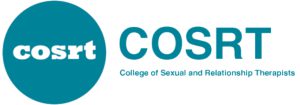
Diploma in Trauma Therapy
March 2025 – January 2026 – 15 days – London
We are now accepting applications for the 2026 intake.
A pioneering professional training in how to work with the process of trauma in a relational way
The last seven years have seen a proliferation of treatment approaches to trauma, ranging from EMDR to Energy Psychology and EFT. The danger in this is that therapeutic work gets reduced to a set of techniques rather than an integrated approach embedded in relationship. Furthermore in pursuit of ‘treatment’ the client may loose an opportunity for meaning making rooted in suffering. The intention is to support students in developing a proactive and therapeutic style, integrating different techniques instead of depending on them.
For whom is this training
This COSRT accredited, innovative training in working with trauma is open to counsellors, psychologists, psychotherapists or other mental health professionals. We will explore the effects trauma has on people’s development in relation to their psyche, body, relationships, work and spirituality. The course explores the mechanisms traumatised people use to organise their lives. As a specific focus we include the impact of the client’s trauma on the therapist.
The course will reflect on post-traumatic stress, single and multiple episodes of trauma, chronic trauma, accidental trauma and developmental trauma.
The overall course aims are:
- To increase understanding of the principles and practice of a number of theoretical approaches to trauma
- To provide practical and helpful interventions when working with clients who have experienced trauma
- To gain a deeper understanding of the impact of trauma on people’s development in their psyche, body, relationships, work and spirituality
- To develop a greater awareness of the contribution various theoretical approaches can make to therapeutic work with traumatised individuals and groups
- To promote a deeper capacity to reflect on working practice and the impact of working with traumatised individuals
- To critically examine trans-generational issues in relation to trauma
- To critically examine the recent contributions to trauma work: neuroscience, EMDR, EFT and somatic work.
Our philosophy is Integrative, drawing on a wide range of theoretical orientations and disciplines including Trauma Focused CBT, Gestalt, Somatic and psychoanalytic thinking. It will provide a supportive and energetic setting in which learning about trauma and its aftermath can take place.
The faculty includes Hattie Berger (Course Director), Joanne Collins, Errol Dinnall, Abigail Iquo Isuo Peters and Thomas Spiers: highly experienced specialists representing clinical expertise in psychoanalytical approaches, neuroscience, bodywork, transpersonal approached and CBT.
4 weekends (Saturdays and Sundays, 10.00 – 17.00) plus 7 Saturdays (10.00 – 17.00), total 15 days, 105 hours. Starting March 2026, ending January 2027.
TBC
Day 1 + 2: Saturday 21 and Sunday 22 March, 2026
Day 3: Saturday 11 April, 2026
Day 4: Saturday 16 May, 2026
Day 5 + 6: Saturday 6 and Sunday 7 June, 2026
Day 7 + 8: Saturday 18 and Sunday 19 July, 2026
Day 9 + 10: Saturday 26 and Sunday 27 September, 2026
Day 11 + 12: Saturday 31 October and Sunday 1 November, 2026
Day 13: Saturday 21 November, 2026
Day 14: Saturday 5 December, 2026
Day 15: Saturday 9 January, 2026
£2,950 (incl VAT) The fees may be paid in 10 equal instalments of £275 and a deposit of £200 to secure your place. A limited number of bursaries is available.
NAOS premises, 74 Castlebar Road, Ealing – London W5 2DD
University of West London, St Mary’s Road, Ealing W5 5RF
Course content
The course consists of theoretical, experiential and live clinical components.
The theoretical input encourages critical engagement with the theory and practice of a variety of trauma models.
Teaching and supervisory methods emphasize the multi-layered, multi-faceted processes of this impactful work, including the intentional use of self.
As already mentioned the course philosophy is Integrative and draws on the various theoretical approaches present within the student body. Differences and similarities are equally valued on the course – it is recognized that students may be required to work alongside a variety of theoretical approaches.
The following is an indication of themes covered, however other themes may surface as part of the ongoing dialogue
· Philosophy of traumatic models of working
· Integrative frameworks
· Gestalt, CBT, psychoanalytic, transpersonal and systemic models of trauma theory and practice
· Trauma Focused CBT
· Psychoanalytic approach to trauma
· Trauma & eating disorders
· Mindfulness
· Pseudo-competence
· Trauma in adolescence
· Monitoring good practice in clinical work
· Attacks on the body
· Developmental trauma
· Domestic Violence
· Over- and under-nurturing
· Sexuality and gender
· Systemic issues
· Parallel process
· Ethical and legal considerations
· Self-care
· Cross cultural issues with refugees and asylum seekers
· Self-harm
· Dissociative disorders
· OCD
Methodology
The programme combines didactic theory seminars, work discussion groups and experiential learning, skills training in triads and small groups, guided reading and large group process. Each course member will be required to bring case material for presentation and discussion once each term.
All NAOS programmes are taught at postgraduate level and course participants are expected to work academically on this basis. Discussion within the student body is as important as the tutor-taught components. Participants are encouraged to integrate the ideas from the course into a personally coherent clinical model; this will be demonstrated in the written assignment for this course.
Entry requirements
No less than 1 year experience post-qualification and ability to work at post-graduate level as counsellor, psychologist, psychotherapist or mental health professional.
Faculty
The course is taught by a highly experienced faculty, representing a wide range of theoretical approaches and disciplines. All have been selected for their ability to work relationally.
The faculty includes Hattie Berger (Course Director), Tom Spiers, Joanne Collins, Errol Dinnall and Abigail Iquo Isuo Peters: highly experienced specialists representing clinical expertise in psychoanalytical approaches, neuroscience, bodywork, transpersonal approached and CBT. For biographies see: About Us.
Handbook
All course participants will be provided with an extensive course handbook, including handouts, code of ethics, assessment forms, essay title, a reading list and more.
Course Format and Dates 2025 – 2026
The course is offered as a 7 Saturdays (10.00 – 17.00) plus 4 two-day blocks Sat-Sun module (each day 10.00 – 17.00). The two-day blocks are jointly taught and offer opportunities to practice clinical skills.
Saturday mornings are given over to theory and practice while saturday afternoons will include a work discussion group and experiential group. Students will have an opportunity to present clinical material in the work discussion group each term. Saturdays will be theory and practice full days.
4 weekends (Saturdays and Sundays, 10.00 – 17.00) plus 7 Saturdays (10.00 – 17.00), total 15 days, 105 hours. Starting March 2026, ending January 2027.
TBC
Day 1 + 2: Saturday 21 and Sunday 22 March, 2026
Day 3: Saturday 11 April, 2026
Day 4: Saturday 16 May, 2026
Day 5 + 6: Saturday 6 and Sunday 7 June, 2026
Day 7 + 8: Saturday 18 and Sunday 19 July, 2026
Day 9 + 10: Saturday 26 and Sunday 27 September, 2026
Day 11 + 12: Saturday 31 October and Sunday 1 November, 2026
Day 13: Saturday 21 November, 2026
Day 14: Saturday 5 December, 2026
Day 15: Saturday 9 January, 2026
Assessment
To qualify for the Diploma students are required to complete one critical reflection of a case study (3.500 words), one critical integration essay (2.500 words), have fully paid all course fees and attend a minimum of 85% of the course.
Fees
£2,950 (incl VAT) The fees may be paid in 10 equal instalments of £275 and a deposit of £200 to secure your place. If you pay the full fee in one lump sum 2 months before the start of the training at the latest, we offer £100 discount (£2,850 total). We have a limited number of bursary places which are allocated on a first come basis.
Application process
Applicants are required to complete the application form (click here).
This will be followed by a telephone interview. If offered a place, a course contract will have to be completed and an initial deposit of £200 paid to secure a place. The remainder may be paid in one lump sum or in 10 equal instalments.

